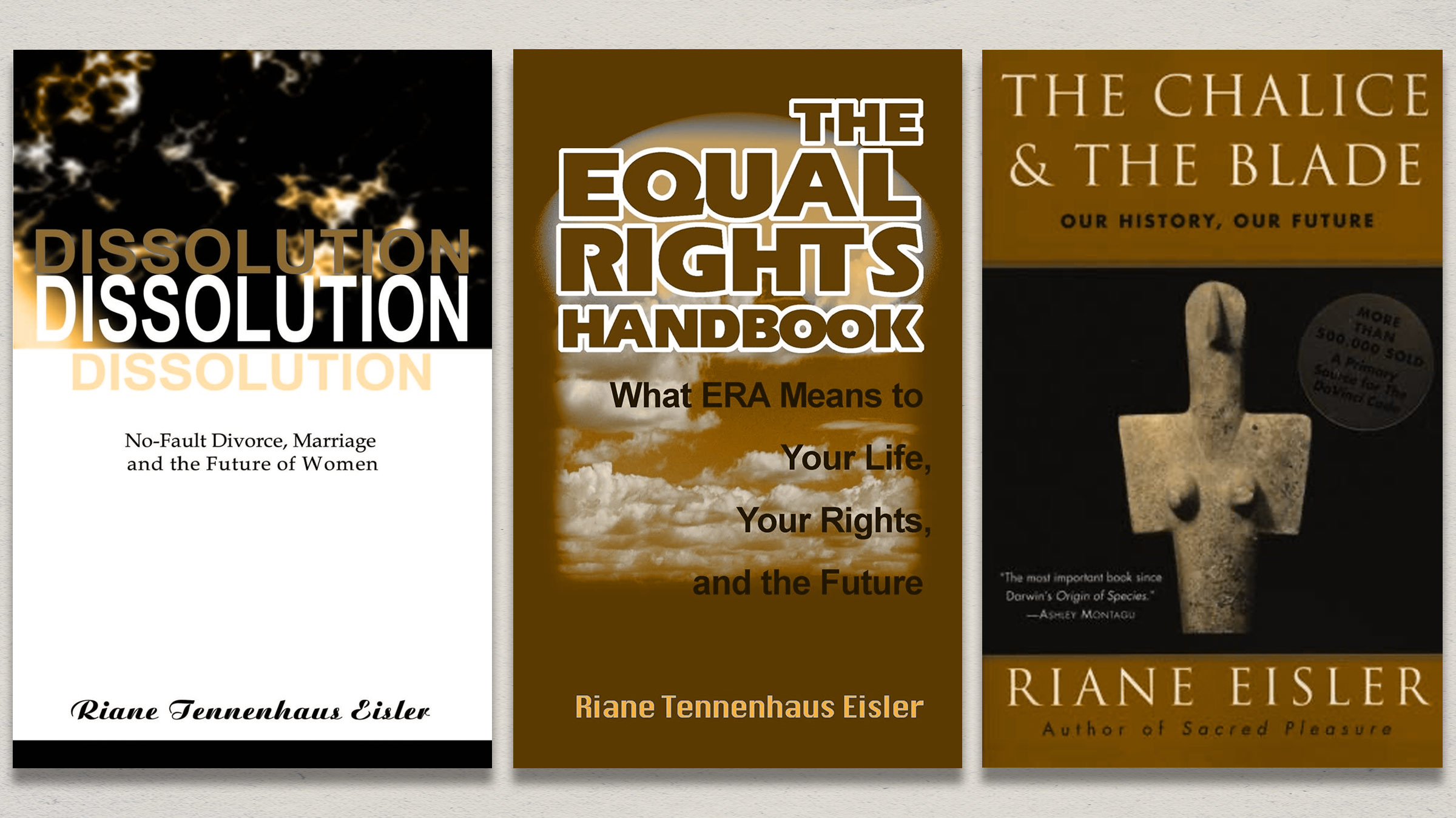July 2022
For Document Journal, Riane Eisler and Tao Lin met to discuss the role of law in shaping society, the allure of prehistory, and how to adopt new modes of thinking.
We invite you to read the beginning of the article written by Tao Lin below, or find the entire article on the Document Journal website here.
Riane Eisler was born in 1931 in Vienna, Austria. In 1939, she and her parents fled the Nazi invasion of their country. They went to Havana, Cuba, where they lived in an industrial slum for seven years before moving to the US and settling in Los Angeles. Eisler married, had two daughters, earned a law degree from UCLA, divorced, practiced family law, and then wrote or co-wrote thirteen books. She is the president of the Center For Partnership Systems, and the editor in chief of the Interdisciplinary Journal of Partnership Studies.
Her most influential book, The Chalice and the Blade, published in 1987, has sold over half a million copies and been translated into 27 languages. I read it in 2014 and found it revelatory and amazing. A holistic study of human history, it took into account important aspects that are normally, in our global dominator society, ignored: women and prehistory. Eisler shared evidence from archaeology, mythology, art, religion, and sculpture that strongly suggested that humans lived in relative peace and harmony, with gender-and-class equality, worshiping nature as a female deity, until only around 6,500 years ago. It was then, according to archaeologist Marija Gimbutas and other researchers, that dominator culture took over, spreading west and south from Eastern Europe, eventually conquering most of the planet.
Besides teaching a fuller version of history, The Chalice and the Blade also introduced Eisler’s Cultural Transformation theory, which proposed that the two underlying models of society are not capitalist and communist, religious and secular, or right and left, but “partnership” and “dominator.” Dominator societies—popularly called authoritarian and patriarchies or matriarchies—are characterized by sexism, which leads to other inequalities, chronic war, nature-destroying habits, the devaluing of caring work, and other dysfunctions. Partnership societies, by valuing diversity, instead of ranking it, feature equality across all differences, from sex and gender to age, race, and appearance, leading to peace and veneration of nature.
After reading The Chalice and the Blade, I read Eisler’s sources—Marija Gimbutas, James Mellaart, Merlin Stone, others—and began to use her terms in my writing, including, eventually, in my books Trip and Leave Society. This year, soon after Leave Society came out, Eisler saw an interview with me in the Los Angeles Review of Books in which I discussed her work. She contacted me by email. I was very surprised. I offered to send her my novel, and, again to my surprise, she read the whole thing and then proposed we speak on a video call. I agreed. The following is an edited transcript of our conversation.
Read the entire transcript of the conversation here.




Leave a Reply